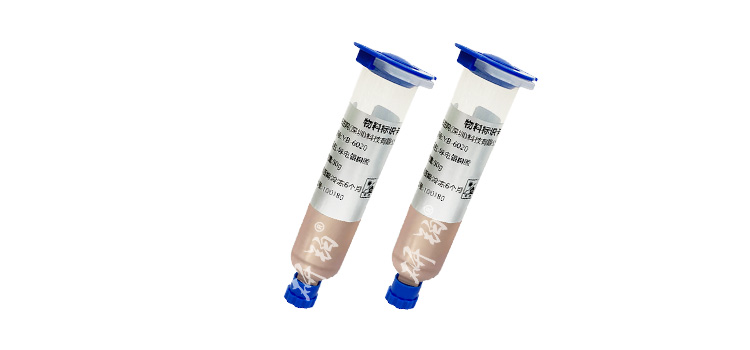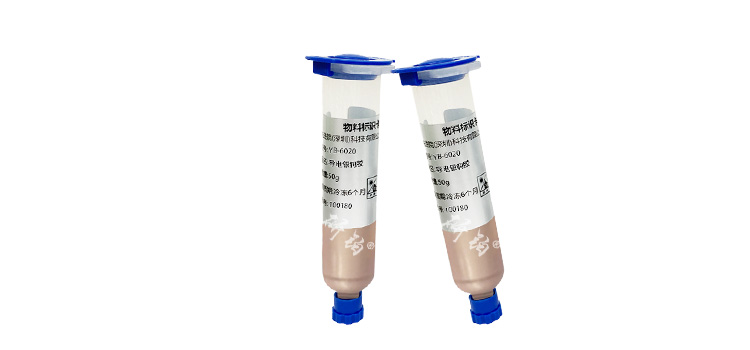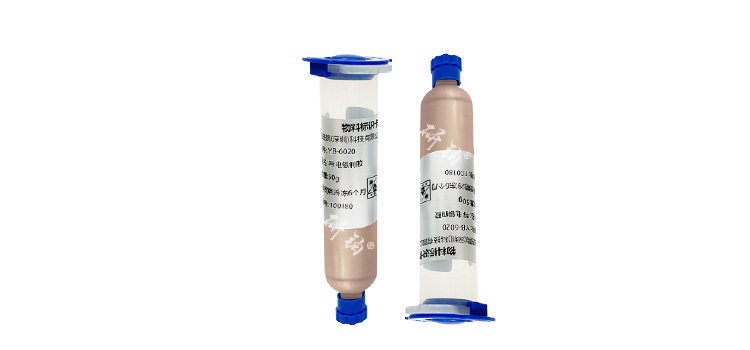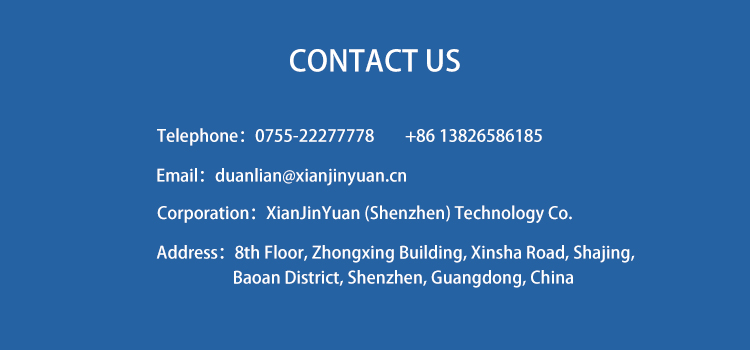1、 Introduction
With the rapid development of modern electronic technology, the application of conductive silver copper adhesive in integrated circuits, electronic packaging and other fields is becoming increasingly widespread.
Research Platinum YB6020 Conductive Silver Copper AdhesiveAs an important product of Advanced Institute (Shenzhen) Technology Co., Ltd., its conductivity directly affects the performance and reliability of electronic devices. The curing temperature and time are key process parameters in the preparation and use of conductive silver copper adhesive, and in-depth study of their effects on electrical resistivity is of great significance.
2、 Experimental section
(1) Experimental materials and equipment
- Experimental material: YB6020 conductive silver copper adhesive from Yanbo brand, made ofAdvanced Institute (Shenzhen) Technology Co., LtdProvided, its main components include silver copper alloy powder, organic resin matrix, curing agent, and other additives. Silver copper alloy powder has good conductivity, and the organic resin matrix provides a medium for bonding and dispersing silver copper particles. The curing agent promotes cross-linking reaction of the resin matrix under specific conditions, thereby solidifying the conductive silver copper adhesive into shape.
- Experimental equipment: high-precision digital multimeter (for measuring resistance values), constant temperature and humidity chamber (for precise control of curing temperature and humidity environment), thermal analysis instrument (such as differential scanning calorimeter, for analyzing thermal effects and temperature changes during the curing reaction process), electron microscope (for observing the microstructure and distribution of silver and copper particles before and after curing).

(2) Experimental Design
- Curing temperature experiment: Set different curing temperature gradients, namely 80 ° C, 100 ° C, 120 ° C, 150 ° C, and 180 ° C. Maintain a constant curing time of 60 minutes at each curing temperature. Apply an appropriate amount of YB6020 conductive silver copper adhesive from the research platinum brand evenly onto the pre treated standard test substrate, and place it in a constant temperature and humidity chamber for curing treatment. After curing is complete, take out the sample and measure its resistance value using a high-precision digital multimeter, and calculate the resistivity based on the size of the sample. Conduct multiple repeated experiments under each temperature condition to ensure the accuracy and reliability of the data.
- Curing time experiment: Select a moderate curing temperature (such as 120 ° C) and set different curing time gradients, including 30 minutes, 60 minutes, 90 minutes, 120 minutes, and 150 minutes. Measure at different curing times using the same coating, curing, and measurement steps as the curing temperature experimentResearch Platinum YB6020 Conductive Silver Copper AdhesiveThe resistivity was measured and multiple repeated experiments were conducted.
3、 Results and Discussion
(1) The effect of curing temperature on electrical resistivity
- Experimental data shows that as the curing temperature gradually increases from 80 ° C to 180 ° C, the resistivity of YB6020 conductive silver copper adhesive from Yanbo brand shows a trend of first decreasing and then increasing. The resistivity decreases significantly within the temperature range of 80 ° C to 120 ° C; When the curing temperature exceeds 120 ° C, the resistivity gradually increases. For example, when cured at 80 ° C, the resistivity is about 5 × 10 ⁻⁴Ω· cm, while when cured at 120 ° C, the resistivity decreases to around 2 × 10 ⁻⁴Ω· cm. However, when the curing temperature rises to 180 ° C, the resistivity rises again to about 4 × 10 ⁻⁴Ω· cm.

- Internal mechanism analysis: In the lower temperature range (80 ° C-120 ° C), as the curing temperature increases, the curing reaction rate of the organic resin matrix gradually accelerates, and the contact between silver and copper particles becomes tighter, forming a more continuous and effective conductive path, thereby reducing the resistivity. However, when the curing temperature is too high (over 120 ° C), on the one hand, it may cause a certain degree of oxidation or agglomeration of silver copper particles, which damages the originally good conductive network structure; On the other hand, excessively high temperatures may cause excessive curing of the resin matrix, resulting in internal stress and affecting the interface bonding between silver copper particles and the resin matrix, leading to an increase in electrical resistivity.
(2) The effect of curing time on electrical resistivity
- Experimental data presentation: At a curing temperature of 120 ° C, as the curing time increases from 30 minutes to 150 minutes,Research Platinum YB6020 Conductive Silver Copper AdhesiveThe resistivity also shows a trend of first decreasing and then stabilizing. When the curing time is short (30-60 minutes), the decrease in resistivity is significant; When the curing time exceeds 90 minutes, the change in resistivity gradually becomes flat. For example, the resistivity is about 4 × 10 ⁻⁴Ω· cm after 30 minutes of curing, which decreases to 2.5 × 10 ⁻⁴Ω· cm after 60 minutes, and the resistivity is about 2.2 × 10 ⁻⁴Ω· cm after 150 minutes.
- Internal mechanism analysis: In the early stage of curing (30-60 minutes), as the curing time increases, the curing degree of the resin matrix gradually improves, the dispersion of silver copper particles in the resin becomes more uniform, the connections between them continue to improve, and the conductive path gradually forms and optimizes, resulting in a significant decrease in resistivity. When the curing time reaches a certain level (exceeding 90 minutes), the resin matrix basically completes the curing reaction, and the conductive network of silver copper particles has tended to stabilize. At this point, continuing to increase the curing time has a weak effect on the resistivity, and the resistivity will only have small fluctuations and tend to stabilize.

4、 Conclusion
- The curing temperature and time both have a significant impact on the electrical resistivity of YB6020 conductive silver copper adhesive from Yanbo brand. Within a certain range, appropriately increasing the curing temperature and prolonging the curing time can help reduce electrical resistivity and improve conductivity. But when the curing temperature is too high or the curing time is too long, the resistivity will increase or tend to stabilize due to oxidation, agglomeration of silver and copper particles, and excessive curing of the resin matrix.
-
For the research platinum brand YB6020 conductive silver copper adhesive, the suitable curing temperature range is 100 ° C-120 ° C, and the curing time is between 60-90 minutes. Under these conditions, relatively low and stable electrical resistivity can be obtained, ensuring its good conductivity and reliability in applications such as integrated circuits and electronic packaging. Advanced Institute (Shenzhen) Technology Co., Ltd. can further optimize the recommended range of curing process parameters for YB6020 conductive silver copper adhesive based on the results of this research, provide more accurate usage guidance for users, and promote the widespread application and technological development of this product in the electronics industry.
The above data is for reference only, and specific performance may vary due to production processes and product specifications.




